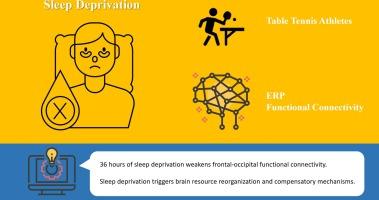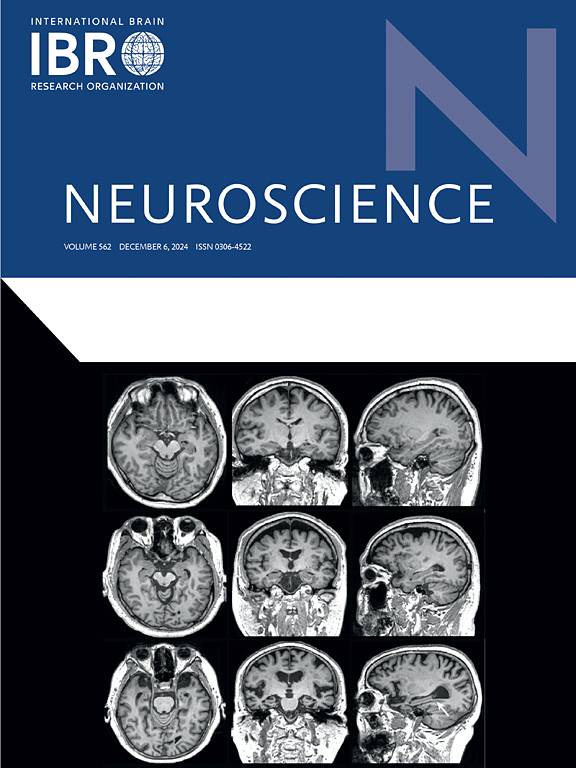睡眠不足会损害乒乓球运动员的空间认知处理能力并改变大脑连通性
IF 2.9
3区 医学
Q2 NEUROSCIENCES
引用次数: 0
摘要
空间认知能力是乒乓球运动员取得优异竞技成绩的关键,而睡眠可能是影响这一能力的重要因素。本研究采用事件相关电位和功能连接分析法评估了睡眠剥夺前后认知资源分配和大脑区域间协调的变化,研究了剥夺36小时睡眠对20名s级乒乓球运动员空间认知处理能力的影响。结果显示,睡眠剥夺明显延长了反应时间,并导致P3振幅下降,反映出参与者的注意资源分配和认知处理能力下降。功能连接分析进一步显示,睡眠剥夺后额叶区和枕叶区之间的β频带功能连接明显降低,表明大脑处理空间信息的效率降低。睡眠不足36小时后,乒乓球运动员的空间认知能力受损。自毁睡眠不仅导致这些运动员的注意资源分配和认知处理能力下降,还削弱了大脑额叶和枕叶之间的功能连接。本文章由计算机程序翻译,如有差异,请以英文原文为准。

Sleep deprivation impairs spatial cognitive processing and Alters brain connectivity in table tennis athletes
Spatial cognitive ability is critical for table tennis athletes to achieve excellent competitive performance, and sleep may be an important factor influencing this ability. This study investigated the impact of 36h sleep deprivation on the spatial cognitive processing of 20 s-level table tennis athletes, using event-related potentials and functional connectivity analysis to assess changes in cognitive resource allocation and inter-regional brain coordination before and after sleep deprivation. The results showed that sleep deprivation significantly prolonged reaction time and led to a decrease in P3 amplitude, reflecting a reduction in participants’ attentional resource allocation and cognitive processing capacity. Functional connectivity analysis further revealed that β frequency band functional connectivity between the frontal and occipital regions significantly decreased after sleep deprivation, indicating reduced brain efficiency in processing spatial information. After 36 h of SD, the spatial cognitive ability of table tennis athletes was impaired. SD not only led to a reduction in the allocation of attentional resources and cognitive processing capabilities in these athletes, but also weakened functional connectivity between the frontal and occipital lobes of the brain.
求助全文
通过发布文献求助,成功后即可免费获取论文全文。
去求助
来源期刊

Neuroscience
医学-神经科学
CiteScore
6.20
自引率
0.00%
发文量
394
审稿时长
52 days
期刊介绍:
Neuroscience publishes papers describing the results of original research on any aspect of the scientific study of the nervous system. Any paper, however short, will be considered for publication provided that it reports significant, new and carefully confirmed findings with full experimental details.
 求助内容:
求助内容: 应助结果提醒方式:
应助结果提醒方式:


